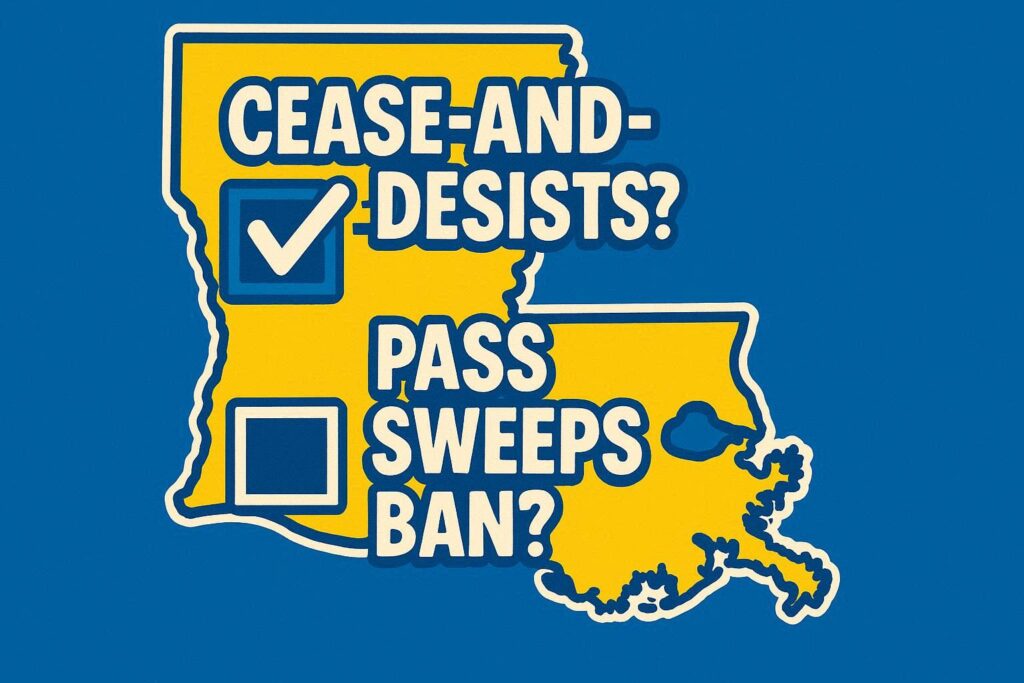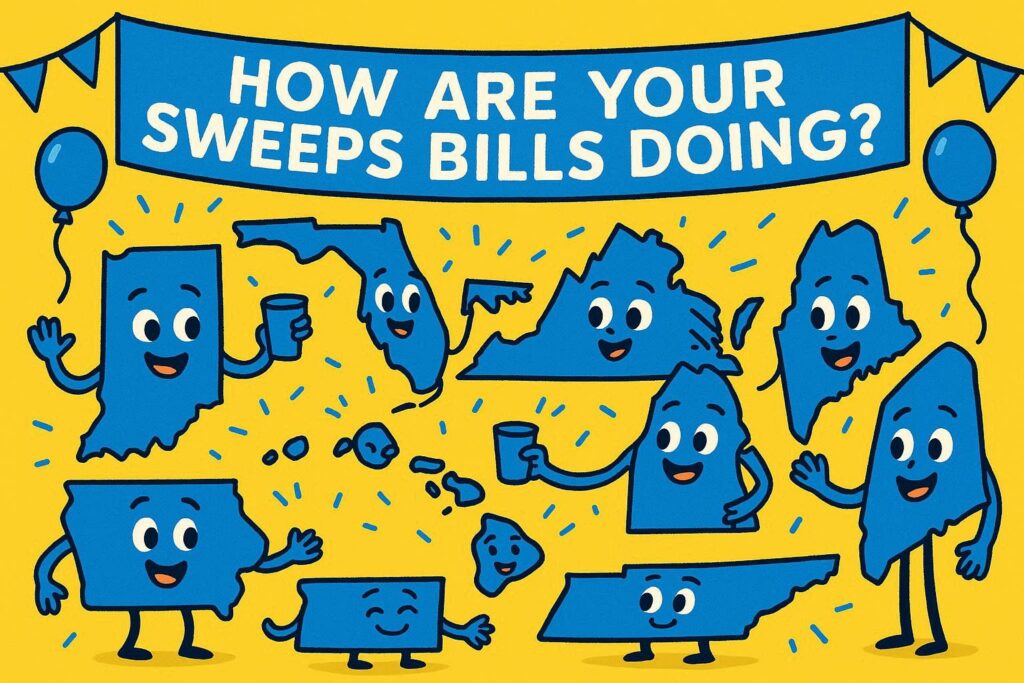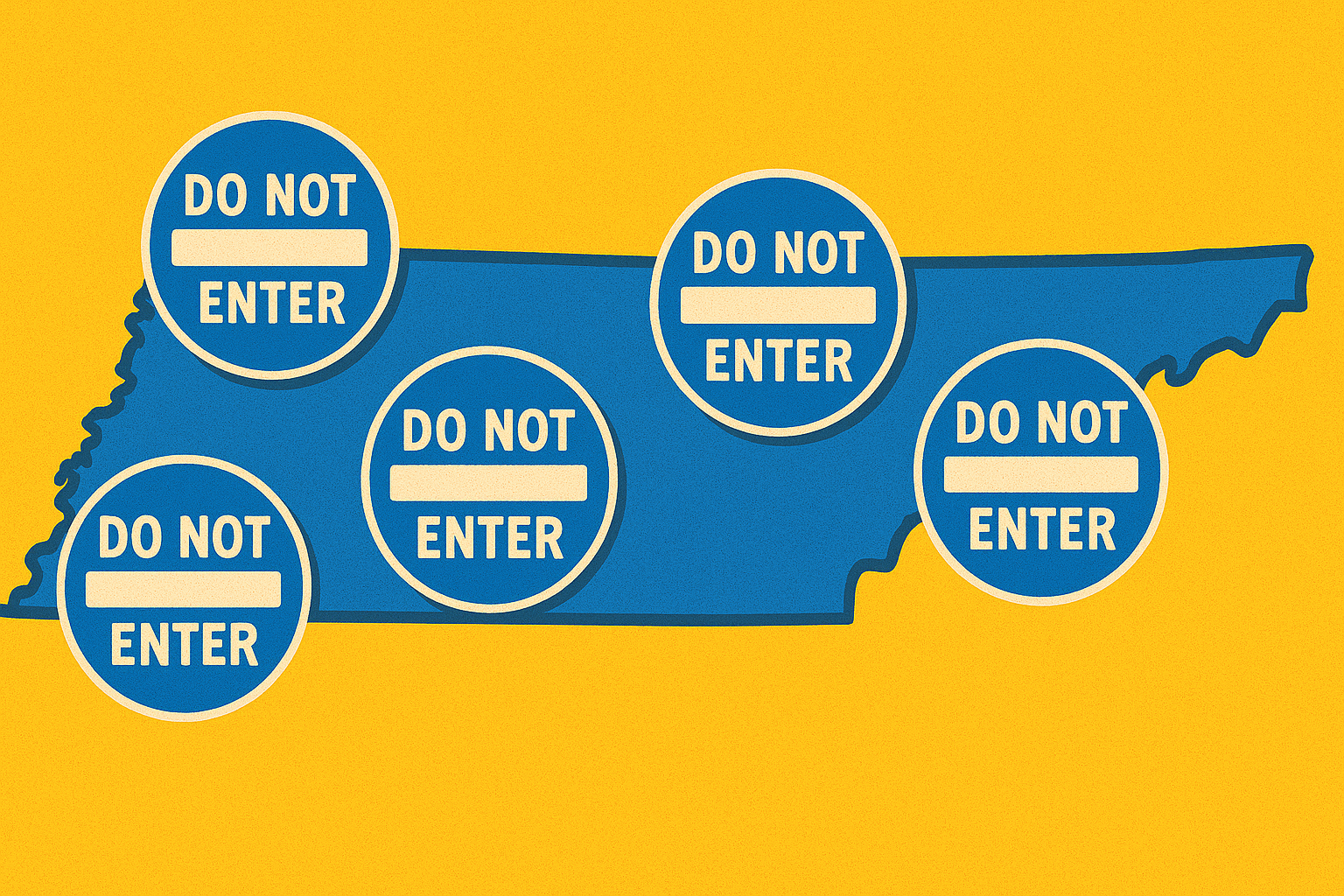California’s bill banning sweepstakes casinos is moving on to the next phase.
During its suspense hearing Friday, the Senate Appropriations Committee voted to remove Assembly Bill 831 from the suspense file and advance it along to the Senate via a unanimous 7-0 vote, where it will be put on the schedule for a full vote.
Friday’s hearing did not feature any testimony for any of the bills committee members considered, giving it a different feel than any of the prior three hearings for AB831. Suspense hearings are only meant for votes, where committee members have already made their decisions behind closed doors and are simply making those decisions public.
What happens next?
Up next, AB831 will be voted upon by the full Senate.
It needs a simple majority to pass in the Senate, so 21 out of 40 votes.
If it passes in the Senate, AB831 will be sent back to its originating chamber, the Assembly, because this current version is entirely different from the original AB831 that passed in the Assembly this spring. That original version dealt with timelines for reviewing tribal-state gaming compacts for federally recognized tribes in California, but that bill was changed using the controversial gut-and-amend process to become the sweeps ban bill in June.
Because it was gutted and amended, AB831 doesn’t need to redo all its original steps in the Assembly. It just has to pass two hurdles: the Assembly Governmental Organization Committee, then the full Assembly, where it would need 41 of 80 votes to pass.
From there, AB831 would be sent to Gov. Gavin Newsom’s desk for his signature.
That’s a considerable amount left to be accomplished before Sept. 12, the legislative deadline for California’s 2025 session. However, California operates on a two-year legislative cycle. That means that, if AB831 doesn’t clear every hurdle before Sept. 12, it doesn’t fail. Rather, lawmakers can pick right up where they left off with it when the 2026 session begins in January.
With proper education and grassroots advocacy, Princeton Public Affairs Group partner Bill Pascrell III, an influential gambling industry attorney, lobbyist and advisor, believes Newsom could see the benefit in regulating sweeps casinos versus banning them.
“Governor Newsom is a very smart, adept, nimble guy, and I think he appreciates the potential if this is regulated,” Pascrell told Sweepsy.
Why was AB831 in suspense?
When a bill is flagged as carrying a major fiscal impact, it is placed on what’s known as the “suspense file.”
Bills in suspense are not voted on right away. Instead, they are set aside until a “suspense hearing” later in the session — which took place Friday. At that hearing, the committee faces two options: Advance the bill out of committee, keeping it alive; or hold the bill, which effectively ends its progress.
In short, being sent to suspense means the bill is temporarily shelved for budget review.
In the case of AB831, a government analysis found that the bill could levy a “potentially significant” financial burden on the California Department of Justice, the trial courts system, and local counties. These costs would all stem from the potential criminalization — leading to legal and punitive processes — created by language in AB831, which not only bans sweeps casinos but also criminalizes any entity that “knowingly” supports sweeps casinos.
And as one expert told Sweepsy, that “knowingly” qualifier doesn’t shrink the criminalization umbrella as much as the word might suggest.
A potential conflict of interest along AB831’s path
If AB831 passes the Senate and advances to the Assembly Governmental Organization Committee, there may be questions of a conflict of interest from one of the committee members: Assemblymember James Ramos.
Ramos is the first Native American elected to the California Legislature and a lifelong resident of the San Manuel Reservation. His tribe, the San Manuel Band of Serrano Mission Indians, also known as the Yuhaaviatam of San Manuel Nation, is the primary tribal sponsor of AB831.
As a member of the Yuhaaviatam of San Manuel Nation, Ramos has close financial ties to the tribe — and, by proxy, the success of that tribe’s casino, Yamaava’ Resort & Casino.
According to state filings obtained by Sweepsy, Ramos disclosed that he received “over $100,000” in income from the Yuhaaviatam of San Manuel Nation in 2024. That’s the highest category of income on the Statement Of Economic Interest that all California lawmakers are required to fill out. So we don’t know if the income was $100,001 or significantly higher.
The income is from per capita payments from the tribe, fueled by the success of Yamaava’ Resort & Casino — and its social casino Play.Yamaava, which could be considered a competitor of sweeps casinos in California, which also offer social gaming options.
Ramos’ payments stem from his membership in the tribe — a legitimate entitlement that does not in itself present an ethical violation, even as he serves in public office.
However, questions of conflict arise because Ramos sits on the committee that will help decide the fate of a bill backed by the same tribe that provides him with more than $100,000 annually in tribal income.
Legislative rules allow Ramos to abstain from voting if he perceives a conflict.
In addition, Ramos’ political campaigns have benefited from tribal support. Since 2018, he has received over $500,000 in contributions from California’s gaming tribes, including $109,000 from San Manuel and six-figure sums from other major casino-operating tribes.
Sweeps operators trying to partner with CA tribes who oppose AB831
Recent events show opposition to sweeps casinos among California tribes is not unanimous.
This week, the Sherwood Valley Band of Pomo Indians — a member of the California Nations Indian Gaming Association and owner of Sherwood Valley Casino — came out against AB831 via a letter it wrote to the Senate Appropriations Committee. Soon after, it was announced that the Sherwood Valley Band had formed a digital gaming partnership with B-Two Operations, the operator behind popular sweeps casinos including McLuck and Hello Millions.
“This bill lacks the alleged unanimous support among California tribes, has advanced without meaningful consultation of broader tribal interests, and threatens our inherent right to create legitimate revenue streams to support our people,” the Sherwood Valley Band’s letter read.
Earlier this month, the Kletsel Dehe Wintun Nation followed the same path — writing a letter opposing AB831 to committee members, and then inking a deal with VGW, the operator behind Chumba Casino, LuckyLand Slots, and Global Poker.
And in between those two tribes’ deals, the Big Lagoon Rancheria also wrote an AB831 opposition letter to the Appropriations Committee. No word yet on whether the tribe has entered into any gaming partnership.
In a recent episode of the The New Normal webcast hosted by Victor Rocha, chair of the Indian Gaming Association, James Siva, chair of the CNIGA, said he believes these sweeps operators are misleading and “trying to pick off these smaller tribes.”
“You can’t trust what these companies are telling you,” Siva said. “ … Why trust an outsider when we have tribes that are willing to work with [the small tribes]?”









